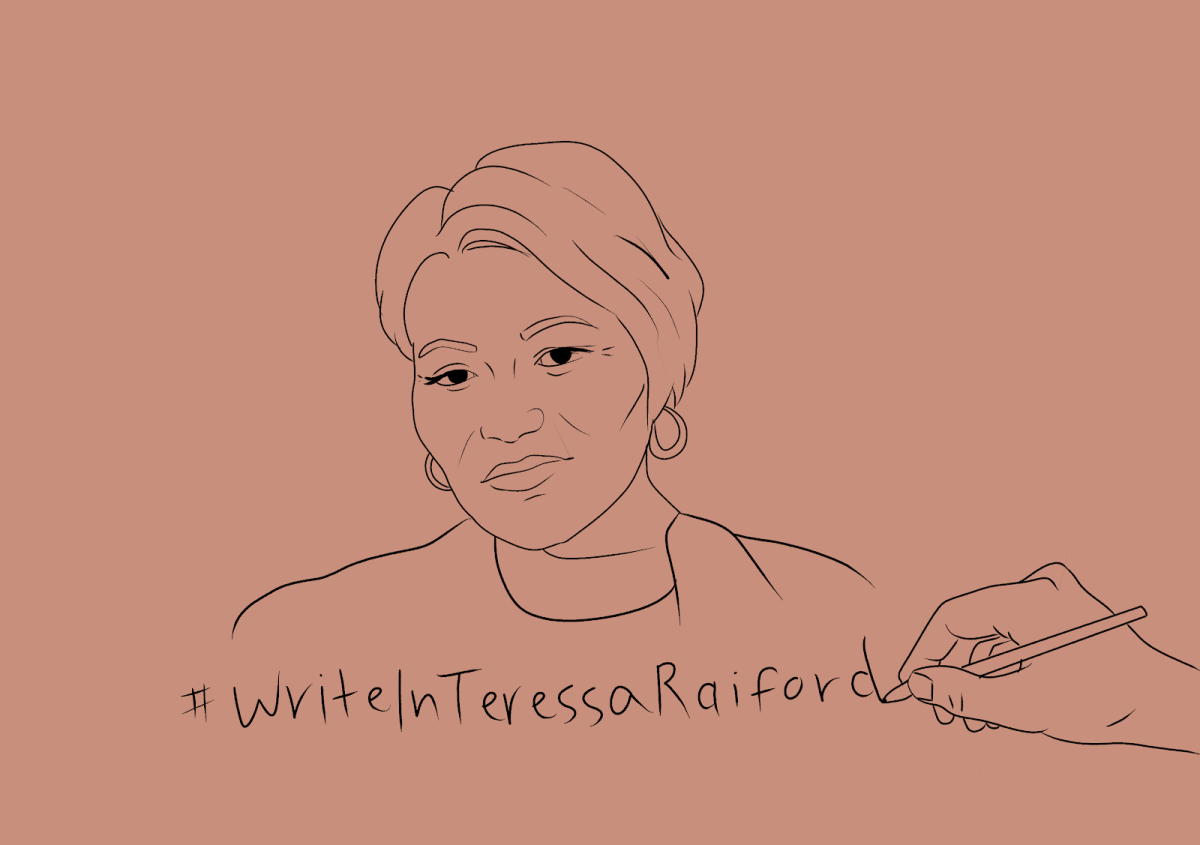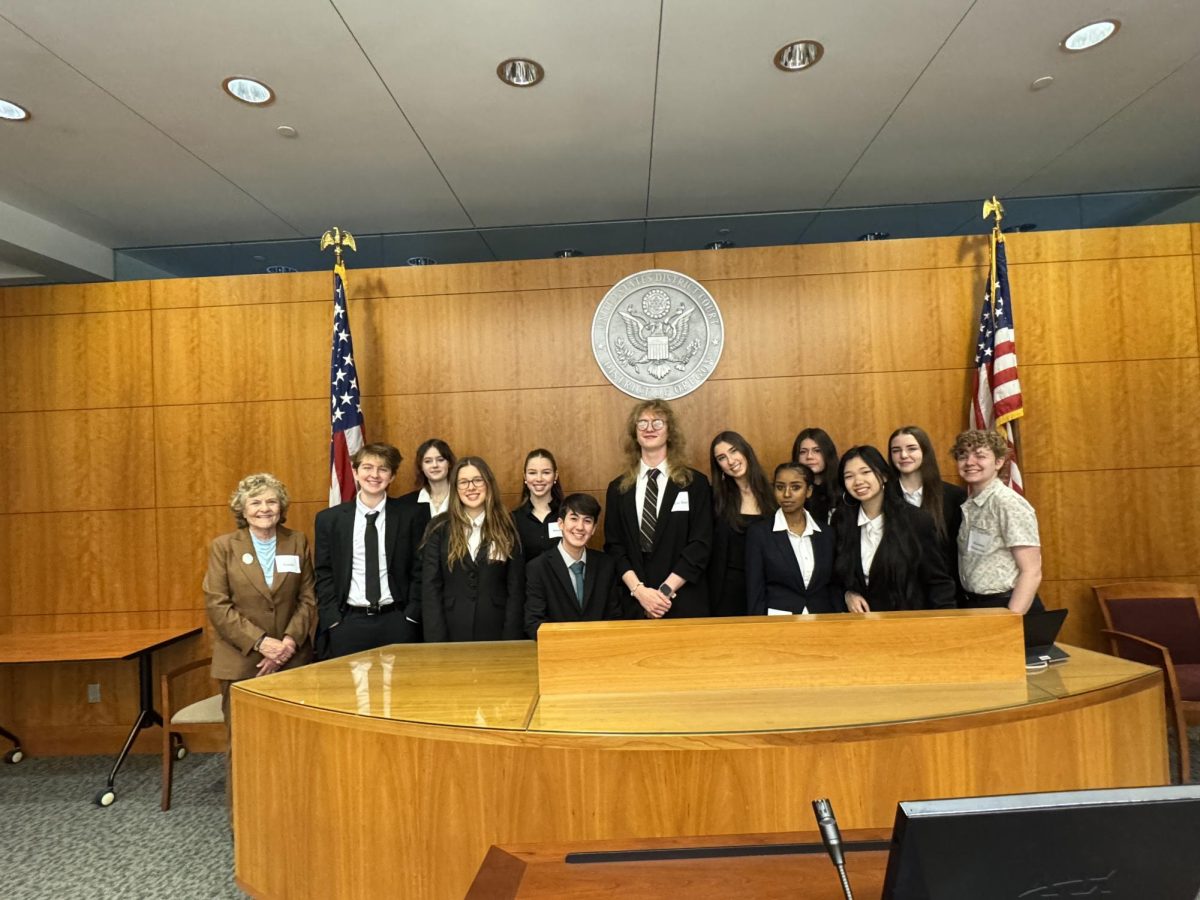By now, most Americans have marked November 3 on their calendars. As a historic presidential election approaches, voters on both sides of the aisle are casting their votes and participating in the most foundational democratic process our country knows. But a little closer to home, local mayoral elections are happening as well. And this year, we have more candidates than just the two on the ballot.
Teressa Raiford ran a primary campaign for mayor in May, which did not receive as much recognition as the frontrunning progressive candidate, Sarah Iannarone. Raiford received just under 9 percent of the vote. However, following the shooting of George Floyd in May and the subsequent outcry of community support for the Black Lives Matter movement, Raiford’s activism and, by extension, her previous candidacy, became more well-known as supporters of her work started a community-led campaign to write her in as mayor.
Raiford is a lifelong Portland resident who has been involved in activism for years. She founded Don’t Shoot Portland ten years ago, which according to her campaign website is “a non profit that advocates for families affected by gun violence, provides no-cost legal support and develops social change movements for youth and vulnerable communities.” She has been a persistent supporter of community-led change, and she and Don’t Shoot Portland have been a large part of the organization behind the ongoing protests in Portland, as well as filing lawsuits against both the City of Portland and the US Department of Homeland Security for the actions of police officers and federal agents during protests. This on-the ground organization and activism is one of the reasons for the outcry of support for her candidacy. Everyday people, who have worked with Raiford in the past or have been impacted by her work, are the driving force behind the campaign.
Frankie Park, a Franklin High School sophomore, is one of those people. She is part of Teens for Write In Raiford, a group of teens and youth who “want to do our part to participate in the local democracy […] even though most of us can’t.” Having teens campaign for candidates is not a new concept, but the fact that this write-in campaign is being run by the community instead of a candidate makes this organization all the more noteworthy. “Everyone is here because we’re passionate about it,” says Park.
And it’s true—everyone working on this campaign is passionate, not only about Raiford’s candidacy, but about the issues that she’s been talking about and organizing against throughout her history of activism. Jacinda Padilla, one of the main organizers for the Write In Raiford campaign, talks about Raiford’s long history of activism and social justice, and her background as an auditor. According to Padilla, she has a history of using audits to see where we are failing to put money into the community. “Her background is caring for the community. And with those audits that she’s seen, she knows that people are not being cared for,” they say.
Padilla believes the reason Raiford didn’t receive as many votes during the primary, despite this background community involvement, is because of her anti-capitalist fundraising efforts, as well as Raiford being seen as an “angry black woman.” Raiford is also reluctant to speak with the press, which might have affected voter awareness. In addition to the inherent obstacles posed while running for office as a woman of color, Raiford had a non-traditional approach to campaign financing. During the primary, she chose not to participate in Open and Accountable Elections because of the way the program uses taxpayer dollars to fund candidates, and she didn’t raise as much money as the other candidates. “A lot of folks do not believe that a campaign is viable unless you have an absurd amount of money,” says Padilla. But they believe that campaigning should change, and “it doesn’t have to be rooted in money,” they say. “It should be rooted in connections with our community.” Most successful campaigns have to raise a lot of money, but Padilla believes that the structure of electoral politics should change—and if a candidate like Raiford won an election, it’s possible that it could start moving in that direction.
Raiford’s work within the community and experiences as a Black woman and activist were a big driving force behind creating the write-in campaign, “but she is not a single issue candidate,” writes Portland voter and teacher Julia Collins. “I believe she will bring her lens and her wisdom to other key issues like homelessness, the COVID-19 crisis, and tax reform, and is acutely aware of how these issues disproportionately impact our communities of color.” First-time voter and Franklin graduate Jillian Dixon believes that “she deeply understands Portland’s flaws and has the boldest plans to make lasting change.”
Raiford’s policies are centered around marginalized groups, with plans to support those affected by COVID-19, enact cannabis tax reform, and attempt to rectify the houselessness issue in Portland. Her most controversial points remain with police justice, as Raiford intends to disband and abolish the Portland Police Bureau.
Raiford’s supporters are taking a big chance by writing in a candidate instead of voting for one already on the ballot. But Padilla believes that “we could win, and we can win.” Oregon law places close to no restrictions on writing in candidates, and offices have been filled by write-in candidates before, like South Carolina Senator Strom Thurmond in 1954 and, more recently, Alaskan Senator Lisa Murkowski in 2010. The question is not whether it’s possible—it’s whether it’s likely. And write-in campaigns are usually unsuccessful, with additional obstacles like spelling a name correctly, or hesitant voters who fear they’re throwing their vote away. Write-in campaigns have to put a lot more effort into making themselves known, since their names aren’t on the ballot, and it’s rare that one succeeds. If Raiford doesn’t win, says Park, “hopefully it’ll pave the way for candidates in the future similar to Teressa, and show the community that unconventional candidates and campaigns are not only in the running but what our community needs right now.”
Illustration by Bijou Allard

































